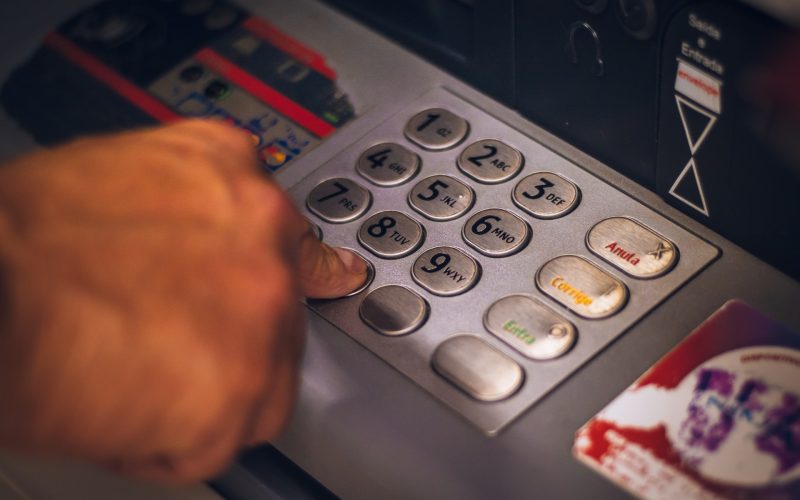Quick comparison
Revolut | N26 | Tomorrow | |
Pure Online/Branch | Online | Online | Online |
Monthly Fee | Free | Free | 3EUR |
Support | Chat & Email | Chat & Email | Phone, Email & Chat |
Cash Deposit Available | No | Yes | No |
Credit Card | No | No | No |
Investment Options | Yes | No | No |
Overdraft Possible | No | Yes | No |
Loan Possible | No | Upto 25K | No |
- Private banks: These would be Commerzbank*, Deutsche Bank, ING, just to name a few. These will be stocks based and will look at shareholder values and maximizing profits as their main goals.
- Public banks: The red “S” logo with a Sparkasse in the title would be public banks: E.g. “Kreissparkasse”, “Stadtsparkasse”, “Sparkasse”. Although sharing the same name, each of these banks has its own CEO; CIO, financial guideline, fee-structure, customer service and so on. They are local in nature meaning that they will be focusing on clients who live in / around their town.
- Cooperative institutions: Volksbanken & Raiffaisen banks are also local in nature and also have individual guidelines on how to operate.
Can I have multiple bank accounts as an Expat?
Definitely yes; and you should. What’s worked out best is to have one current account (Girokonto) and a saving account (Tagesgeldkonto). Although there’s not much to be earned on the savings part, you might want to save up for a rainy fund or a vacation – and it’s definitely not bad to segregate these “investments”/ expenses from your daily stuff. There’s no one stopping you from getting multiple current or savings accounts – you just need to take care about things not getting messy. Our suggestion is to have not more than 2 current accounts in order to safeguard your credit score (as each Girokonto would have a line of credit, which in turn could reduce your credit score). While choosing a bank for your current account, you’ll need to take into account to have a good access to ATM landscape in Germany if you regularly use cash as a mode of payment.How do I open a German bank account?
That’s pretty straight forward as long as you fulfill certain requirements:- Passport (needs to be valid)
- Valid visa (Blue Card, Family Reunion, Permanent Residencyship, Work Visa, ..)
- City registration (=”Meldebescheinigung” so that the bank can send letters)
Criteria to choose a bank account
Online vs branch
This highly depends on the services you want to use. Do you prefer to have some guide you throughout your financial life? Would you rather have someone consult (=sell) you other financial products like insurances, savings plans, etc.? Then a branch bank like Commerzbank or Deutsche Bank would suit your needs best. If you, on the other hand would have a no-thrills bank without the hassle of someone calling you and offering a “perfect” solution for a problem you didn’t know existed; then online banks would better fit the bill. As mentioned above, you can have more than one account, in more than one bank – so it’s not a decision for life nor is it a decision which is non-reversable.Amongst the online banks nowadays – Revolut, N26, Vivid and Tomorrow are the more sought after ones. Please do not take the first best bank which is hyped due to some new hot thing. There are banks like e.g. Nuri who offered a good English speaking service, but lacked financial backing of their investors. They needed to file for bankruptcy on 09.08.2022 – hence they are not in the comparison table.
Fees
The less service you need (=get) the less fees a bank will levy on its product of a current account. There are free current accounts available – some banks mandate you to have a regular income of 700EUR some are 100% free. The monthly fee is only a couple of EUR.Withdrawing Cash
Cash is still very popular in Germany and hence you’ll need a bank which either offers an ATM pool from which you can withdraw money free of charge OR a bank which offers you a card to withdraw money from any ATM free of charge. There are some accounts which will let you withdraw money only for a fee. Have closer look at your requirements on cash on a daily basis to see which bank is a better fit. Perhaps it makes sense to choose a free-of-cost account and spend the occasional 5 bucks to withdraw money? At some supermarkets like Aldi, Rewe, Edeka, Lidl, Hit, Penny, Kaufland, … offer to withdraw cash once you exceed a certain threshold of grocery shopping (~10EUR / 20EUR) – why not explore that option as well. There might just not be the need for an ATM. You can use filters,on comparison portals Verivox and TarifCheck, when searching and comparing the providers, to get the best results suited to your needs.Credit Cards
The easiest and most convenient way to search and apply for a credit here in Germany, would be via Verivox or Tarifcheck. Not only do they compare all the features for you on these portals, but also you can directly apply via these platforms. One can use various filters, to search and compare the best one suited to your personal needs.English Speaking Banks in Germany
| Revolut* | N26* | Commerzbank* | Deutsche Bank* | Vivid* | Tomorrow* | |
|---|---|---|---|---|---|---|
| English Website & support | ||||||
| Pure online / branch | Online | Online | Branch | Branch | Online | Online |
| Credit Card Available | upon request | upon request | upon request | upon request | upon request | upon request |
| Monthly Fee | free (other plans available) | free | only with min. 700EUR monthly input | only with min. 700EUR monthly input | free | 3EUR |
| Free Cash Withdrawals | up to 5x a month (max 200EUR/month) | up to 3x a month | unlimited at Cash Group ATMs | unlimited at Cash Group ATMs + Shell gas stations | Up to €200 a month | 2EUR per withdrawal |
| Free Payment Cards | Prepaid Visa Credit Card | Virtual Debit Mastercard | EC Girocard & Virtual Debit Card | EC Girocard | Visa Debit | Visa Debit |
| Identification method | Photo of ID & Selfie | PostIdent / Video Ident | PostIdent / Video Ident | PostIdent / Video Ident | PostIdent / Video Ident | PostIdent / Video Ident |
| Loan Possible | up to 25k | upto 80k | upto 80k | |||
| Line of credit | ||||||
| Nationalities accepted | Limited (US included) | Extensive (almost all countries) | Extensive (almost all countries) | Extensive (almost all countries) | Limited | Limited |
| Support | Chat & Email | Chat & Email | Phone, Email & in person | Phone, Email & in Person | Chat & Email | Phone, Email & Chat |
Tags:
- finances









2 comments